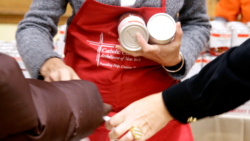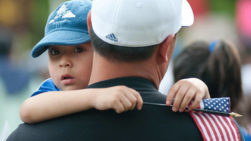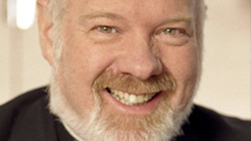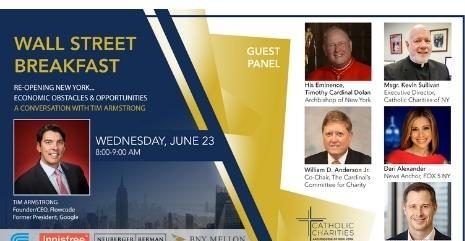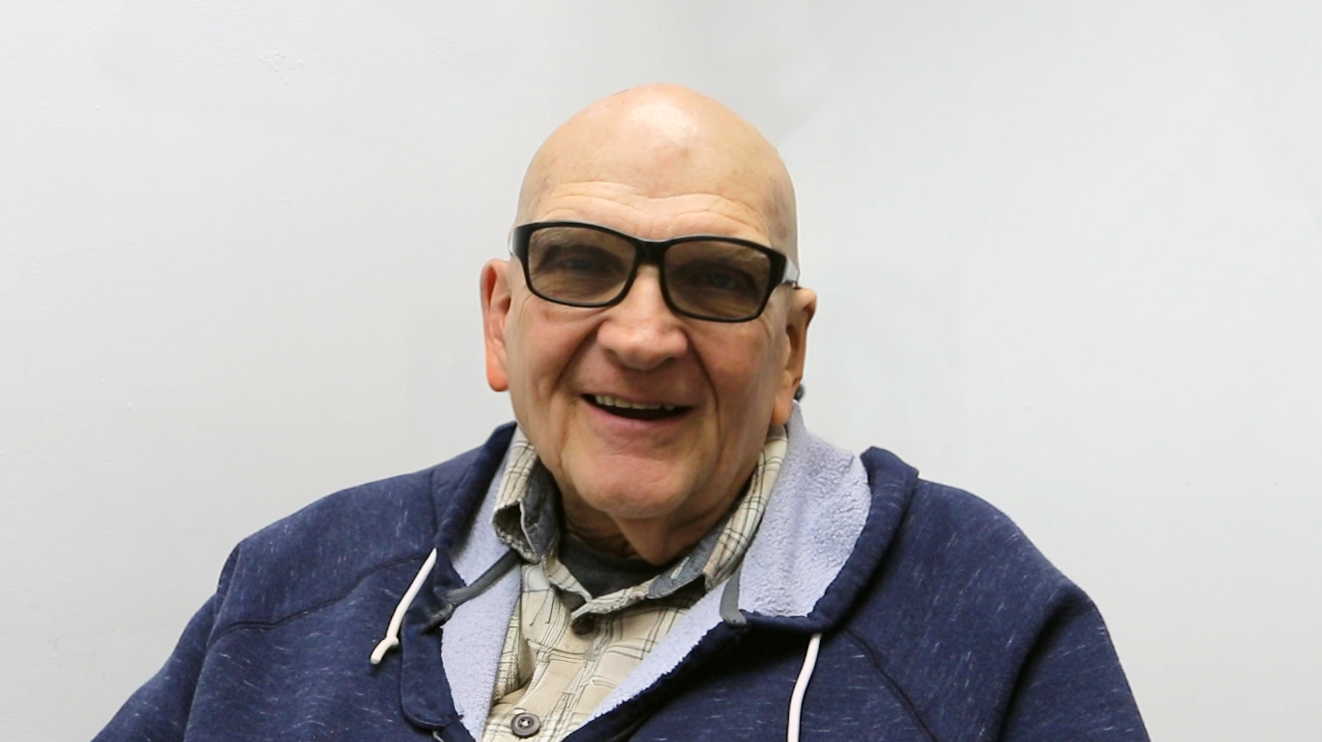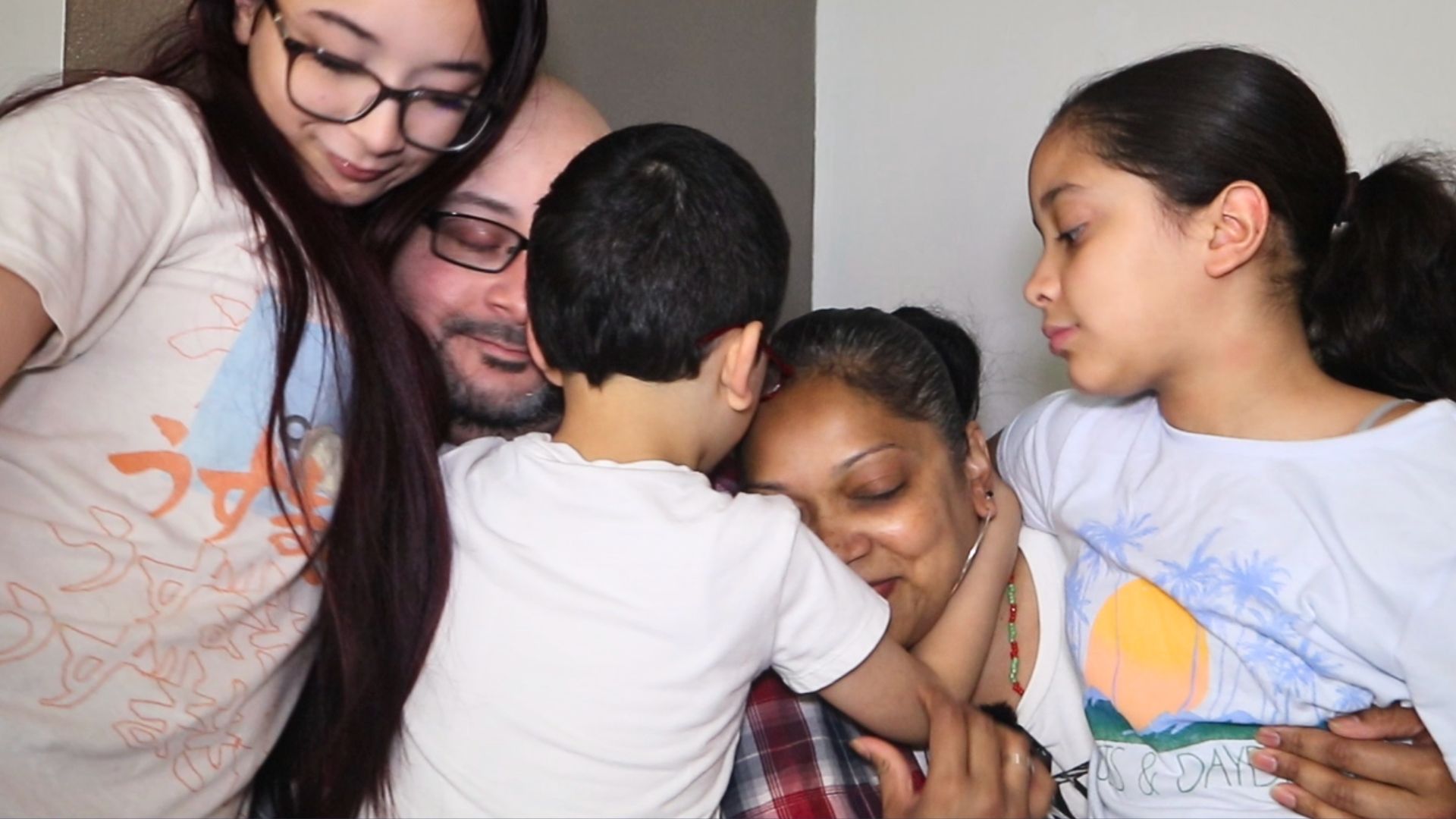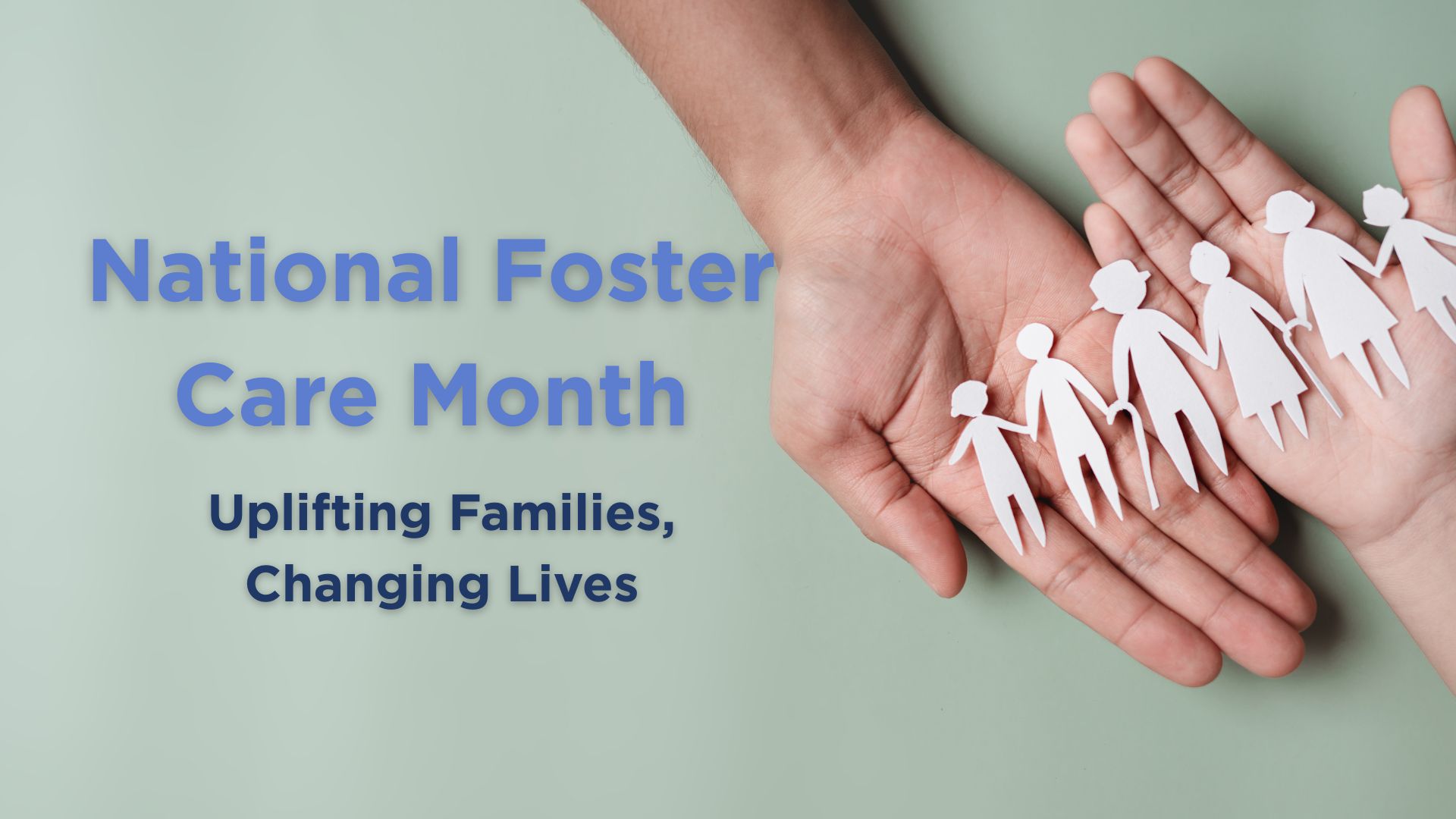The times may be unprecedented but, while New York City emerges from Covid-19, solutions will be found in what has gone before.
New York should look to its post-9/11 recovery to meet its current challenges, according to tech entrepreneur Tim Armstrong. The founder and CEO of Flowcode, the former president of Google and former CEO of AOL, spoke at a June 23 webinar sponsored by Catholic Charities of the Archdiocese of New York and hosted by The Cardinal’s Committee for Charity.
The webinar also featured Cardinal Timothy Dolan, Archbishop of New York, and Monsignor Kevin Sullivan, Executive Director of Catholic Charities for the Archdiocese of New York, who explored how the tech sector, and other businesses, can offer a pathway forward in the post-pandemic world. They were joined by William D. Anderson and Jeff Sanders, co-chairs of the Cardinal’s Committee for Charity.
“Go get that playbook,” Mr. Armstrong counseled the city leadership, including whoever will be the next mayor, the day after New Yorkers voted in a primary election to succeed current Mayor Bill de Blasio. New York, said Mr. Armstrong, recovered after 9/11 in large part to the efforts of former Mayor Michael Bloomberg, who encouraged the growth of high-tech firms in the city, including those led by Mr. Armstrong.
Asked by moderator Dari Alexander from Channel Five Fox News about concerns New Yorkers feel in the post-pandemic era, Mr. Armstrong said the city needs to address safety issues, to create “an atmosphere to recruit talented people to New York, creating an environment in which people really want to come here.”
While concerns over violence and crime have taken center stage, Mr. Armstrong cited other concerns that have gone largely unexamined.
The nature of work has been changed through the pandemic experience, as companies and employees discovered that work at home, aided by Zoom technology, is possible in many industries. Mr. Armstrong said companies should react to the new world of work by three rules for employees: Work where you are most productive; know that the office is open, and “if you forget what you are doing, go back to rules one and two.”
In the post-pandemic era, he said, most businesses will create a hybrid approach, with employees working some days in offices, and the rest at home.
There will also be greater pressure put on private sector organizations such as Catholic Charities New York. The needs addressed by Catholic Charities will call for continued cooperation among city officials and business leaders, said Mr. Armstrong. During the pandemic, the agency distributed more than 9 million meals to needy New Yorkers and millions of dollars in direct aid.
Businesses may be tempted to leave the city because of its high costs. But Mr. Armstrong was confident that New York will retain its edge as those who moved away discover that few places can match its energy and creativity.
Many top tech experts left the city during the pandemic for other locales. But, said Mr. Armstrong, most have returned, especially younger people, who find themselves drawn once again to New York’s creative congestion.
Taxes remain a concern. “If they don’t look rational you will lose businesses and people.”
Mr. Armstrong urged business leaders to stay and develop “anesprit de corps” evident in the city during the post-9/11 era. They should “put on their civic hats and come together” to address New York’s issues of poverty and income disparity. One way to do that, he said, is to support Catholic Charities of New York.
Cardinal Dolan, who holds a doctorate in history, said that the past year’s pandemic is unique, closing down institutions throughout the world, including churches. It never happened before, even in other crises, as the world was united in pandemic lockdown.
“I don’t know what we would have done without technology and Zoom,” said Cardinal Dolan, citing how parishes and the archdiocese were able to continue even during the bleakest days of social distancing.
During the post-pandemic era, he said, the church will need to address “the realm of the spirit,” as people recover from isolation and mourning those who have died. Cardinal Dolan, quoting from the Gospel for Mass the previous Sunday, said many Catholics are disheartened, wondering, as the apostles did when they asked of Jesus during a storm which suddenly threated to swamp their boat, “are you asleep?”
Meanwhile, the church will continue to address practical needs, said Cardinal Dolan. What was discovered during the pandemic, he said, was the dire necessity for cash assistance, as jobs evaporated and many, some for the first time, faced shelter and food concerns.
“Catholic Charities rose to the occasion,” he said, noting how the agency distributed food and gift cards to address urgent needs.
Msgr. Sullivan noted that he has led Catholic Charities New York through three major crises in the life of New York City: 9/11, Superstorm Sandy, and the pandemic. He said the widest impact resulted from the recent pandemic, which spared no one from its effects, including those strolling an empty and barren Times Square to parents isolated at home with their school-age children.
While there are countless stories of heroic service, Msgr. Sullivan said the response to the crisis became too divisive. “There are too many in our society who want to pit us against each other,” he said, citing political, ethnic, and wealthdivisions. “Too much is based on defining ourselves in opposition to one another.”
Catholic Charities, by contrast, he said, is focused on unity, building a network of relationships to respond to crises. That can include calling on business leaders to respond to urgent needs such as the threat of hunger during the pandemic, he said.
“You have to build on those relationships,” he said, noting that Catholic Charities will continue to welcome the corporate community, challenging it to respond to the needs of the poor and the struggling.
Discussing the Emergency Cash Assistance Program, Monsignor Sullivan credits the strong relationship with New York’s business leaders as the driving force behind providing upwards of five million dollars in gift cards to those in need during the pandemic.
“It is because people stepped up to the plate and reached into their pocketbook, providing us with millions of dollars [that we were able] to help vulnerable New Yorkers.”
What he described as the city’s “eco-system,” a network of leaders concerned about New York, needs to be nurtured in what is a divisive time. Otherwise, he said, the results will be disastrous.
“If we don’t get our act together, respect those we disagree with, that eco-system of New York is really in danger,” Msgr. Sullivan warned.
He urged that “we better commit ourselves across the board to a future where we build relationships and we continue to work for the common good of all New Yorkers.”
If you missed our webinar, click on the video below to watch.


